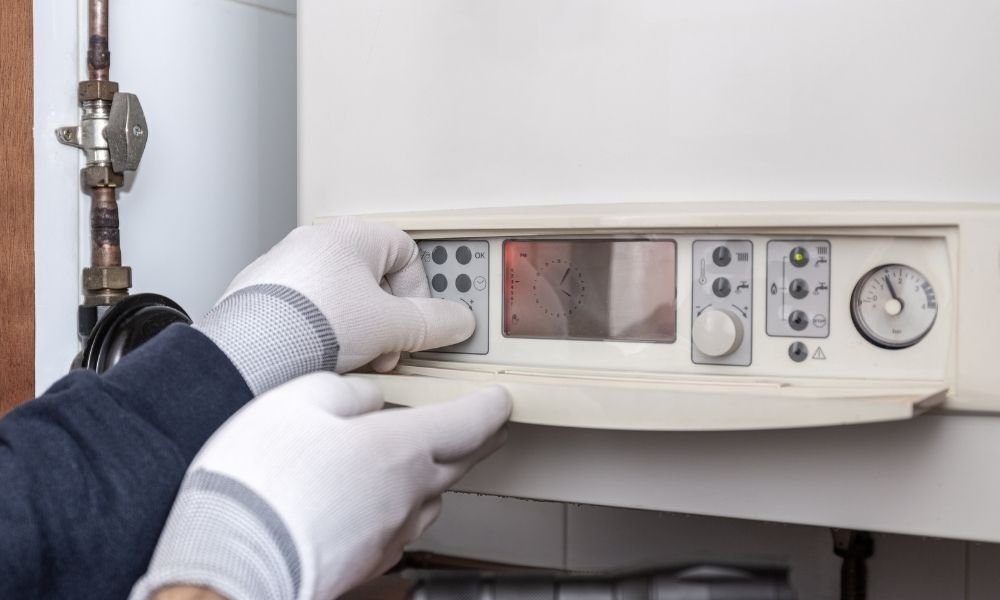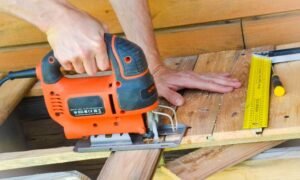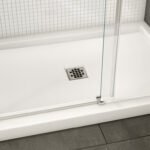Last updated on February 25th, 2024 at 12:28 am
When the signs of summer arrive, bringing warmer weather, naturally the central heating is not used much. It would be easy to forget about the boiler until it’s needed again during the autumn/winter, however, the summer is the perfect time to do some general maintenance.
This guide will explain why it is best to undertake essential maintenance during the summer, cover which tasks should be completed as well as discuss common questions about efficient heating system settings for the summer. Finally, we will discuss when would be most appropriate to replace a boiler.
Why Undertake Boiler Maintenance During the Summer?
During the winter, a boiler is working hard to keep the property warm and therefore there is less opportunity to turn it off for maintenance.
In addition, qualified heating engineers are in greatest demand over winter, dealing with emergency breakdowns and therefore when summer arrives, it is easy to make an appointment for the annual service.
Now that we have covered the reasons why summer is the best time to complete maintenance, let’s move on to discuss the essential maintenance tips as well as popular questions regarding boiler settings in the summer.
Essential Maintenance Tips
Taking care of your boiler will ensure that it is safe to operate and help prolong its useful life.
Over the summer months ensure that the following are undertaken:
Tip 1 – Book an Annual Service
Booking an annual service with a Gas Safe registered heating engineer will ensure the safety of the boiler by checking the condition of the internal parts.
Annual safety checks are a legal requirement for properties that are leased and also if the boiler is still under warranty, the annual service will be required in order to keep the manufacturer’s warranty valid.
Tip 2 – Monitor the Boiler’s Pressure
Boilers need a certain level of pressure in order to operate and work effectively. If the pressure is out of the desired range, either too high or too low, the internal components of the boiler can be damaged.
There are many signs that indicate a pressure issue such as the heating or hot water not working appropriately or the boiler shutting down, however the best indication of a problem is to monitor the pressure reading within the digital display or pressure dial.
In order to find the correct pressure settings for your specific make and model of boiler, refer to the boiler’s user manual, or search online.
How to rectify low boiler pressure
If the boiler’s digital display or dial displays a pressure reading that is too low, follow the instructions within the user manual to top up the pressure within the boiler by using the internal filling loop.
Following a pressured alignment, always continue to monitor the pressure in case the adjustment is a temporary fix.
If the problem reoccurs, seek further advice from a Gas Safe registered heating engineer will need to be called in order to investigate further.
How to rectify high boiler pressure
If the pressure reading on a boiler is too high, the first action is to bleed the radiators within the heating system to relieve some pressure.
This is a simple procedure with plenty of DIY videos available online, however, will require a radiator key, or similar tool.
Once the procedure has taken place, the boiler pressure may have dropped and require resetting, however, if the issue is not resolved, call out a Gas Safe registered heating engineer for further guidance.

Tip 3 – Undertake Visual Inspections of the Entire Heating System
During the summer months, it is important to take time to undertake a full visual inspection of the entire heating system, checking the condition of the pipework as well as any tanks, seeking any signs of leaks, and reviewing the condition of any insulation on both the pipes and tanks.
If there are any signs of damage to the system or leaks located, please contact a Gas Safe registered heating engineer for further advice.
What Are The Most Efficient Boiler Settings?
In this next section, we will be covering the most common questions regarding the appropriate settings for boiler efficiency over the summer months.
Should a Boiler be Turned off Completely During the Summer?
Unfortunately, there is not a straightforward answer to this question as there is a range of factors at play.
For example, if the boiler is an older model that has a pilot light, the household may save energy by turning off the boiler for the summer, however, a more modern boiler may not offer the same benefit.
In addition, if the boiler is a combi-boiler, also serving the hot water system turning off the boiler will impact the household bathing and therefore is not an option.
Furthermore, should a boiler be turned off for a period of time, the internal parts may become fused together resulting in them not working when the boiler is needed again in the autumn.
An alternative to turning off the boiler completely would be to turn down the thermostat so that the system would only fire up during the coldest of nights or adjust the timer settings so that the program is only active on a minimal frequency.
Should the Radiators be Switched off During the Summer?
This question would again depend on the type of boiler in situ. If the property features a combi boiler, an option to save energy would be to switch off the radiators in order to simply run the hot water only.
Turning off all radiators would be effective, however, if there is a partially cold room or snap cold weather, only specific radiators could be left on so that the heating would be focused on just that area, creating a zoning effect.
When Should I Replace My Boiler?
If your boiler is on its last legs, you may be thinking about arranging a replacement. Have you had a rocky couple of years with breakdowns and call-outs?
If so, the summer months provide the best opportunity to replace a boiler due to the availability of heating engineers and the supplies of boilers, as there is less of urgent demand.
Also, if there is any downtime between the current boiler being decommissioned and a new installation, the warmer months help this to be less painful. However, often like-for-like boiler replacements can usually be installed within one working day.
There is a range of methods of arranging a new boiler installation these days; directly with manufacturers, through local or national suppliers or via a modern, online-only route.
Whichever method is preferred, it is recommended that a number of quotes are sought in order to obtain value for money.
Final Thought
We have been discussing why it is sensible and practical to undertake boiler maintenance during the summer, as well as covering a number of top tips of which boiler maintenance tasks are essential to be undertaken within the summer months.
We also progressed to discuss the most efficient boiler settings in order to save energy over the summer, depending on the type of boiler in situ. And finally, we reviewed why replacing a boiler in the summer is a sensible option.
Should you need any further advice on how to maintain your current boiler, or if you are ready to request a quote for a replacement energy efficient boiler, please contact a Gas Safe registered heating engineer for the most up to date expert advice in order to get your property warm, ready for the forthcoming winter.
















